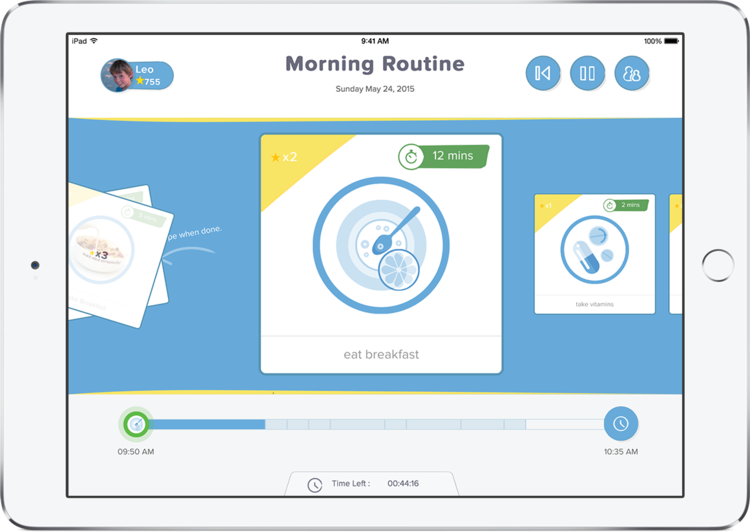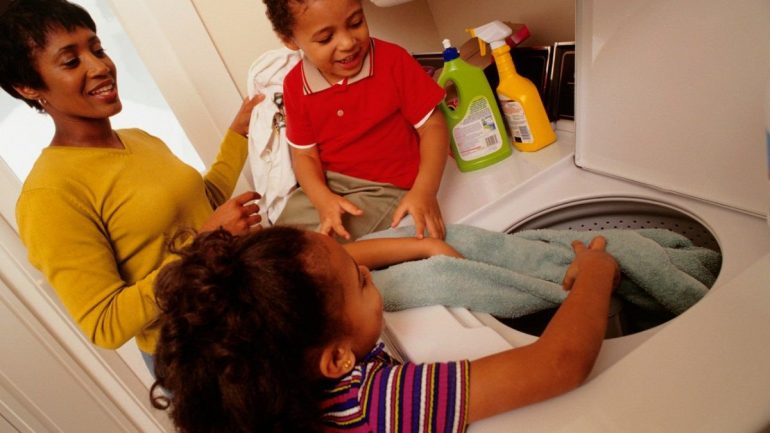As part of a regular series powered by IBM, BetaKit interviews Canadian tech leaders using innovation for the greater good.
The rapid pace of technological innovation leads to the development of new products and services each year. However, there’s also another kind of innovation that applies new technologies to problems where the current solution is correct in theory, but impossible to implement in practice.
Caring for a child with a learning disability requires the latter kind of innovation.
Inspired by founder Pierre Séguin’s time as a software development team lead, Brili is a system that uses gamification to empower children with learning disabilities.
The app helps children follow a routine and receive a reward for completion, per psychologist-documented best practices. The technology uses IBM Cloud to help provide a real-time tracking dashboard for parents. Brili is currently working to add artificial intelligence (AI)-based algorithms to enhance its existing trend analysis features.
The parent trap
“My goal is for families to enjoy their time together without getting upset, and for kids to have self-confidence in their ability to get through daily life,” said Séguin.
Child psychology has well-documented processes for working with children that suffer from ADD, ADHD, and other learning disabilities, explained Séguin. Common among them is the requirement for a consistent, easy-to-follow routine. Further, the child needs patience from parents and the ability to self-manage as much as possible.

“The process is well-known,” Séguin continued. “The problem arises when the parent is unable to follow best practices.”
Without the right technology, parents often juggle many tools to help their child with a consistent routine: a written list of daily tasks, a timer or other method of staying on track, a reward to encourage good behaviour, and enough patience themselves to outlast the tantrums.
“Some are very lucky to have parents who can invest the time to help them through the day, but the majority of parents are just doing the best they can with limited time and resources,” noted Séguin.
An enterprise-grade solution
The platform that Séguin built to help parents and kids alike uses a gamified, kid-facing dashboard accessed through an iOS or Android app or web browser. Parents set up the routine, but the process is entirely kid-owned.
“Using a cloud-based solution, kids log into the app and receive a prompt for their daily routine,” explained Séguin. “As kids receive guidance from the app and complete activities, they mark it in the app, hopefully before the allotted time for the task runs out. Every second that they save from doing their tasks quickly adds to their free time reward at the end.”
Pierre Séguin originally got the idea for Brili as an agile software product owner.
With the Brili app, the kid is in control. They get the confidence of checking a task as complete, and feel motivated to beat the timer because it means they get a reward, Séguin said. All the while, parents have data in real-time so they can see how their kid is progressing.
If this technology sounds similar to an enterprise task tracker (minus the free time reward at the end), it’s because Séguin originally got the idea for Brili as an agile software product owner.
“I had designed screens in the office that showed all of our projects, how complete they were, and the time remaining to completion,” he said. “I realized that I could leverage this technology for kids.”
Building from its initial cloud-computing model and again taking a hint from the enterprise, Brili has AI integration on its roadmap using IBM Watson.
The company is currently planning a system that uses AI to analyze kid-level data to deliver recommendations and pattern analysis to parents.
“Watson could look into task completion rates, routine patterns, and other factors,” said Séguin. “The plan is to not only help parents paint a full picture of their child’s progress, but also predict the inputs that will lead to the highest success. This could mean a shift in the sequence of tasks, offering more time for a certain type of activity, etc.”
Growth prospects
Brili’s current mission is to remain focused on child health enablement. Once the underlying technology is more predictive, however, Séguin sees a variety of applications for the platform.
“ADHD in particular is very heritable,” he said. “That means if we are helping a kid with ADHD, it’s highly likely that the parent also has ADHD.”
Séguin says the company is looking at how its platform can extend to help adults with things like meeting agenda management, or helping seniors who need to be monitored throughout their daily tasks for health reasons.
“The technology itself has a lot of applications, but we don’t want to spread ourselves too thin,” said Séguin. “We want to dedicate resources to helping children right now, and do that right so kids with learning disabilities gain the confidence they need to succeed.


